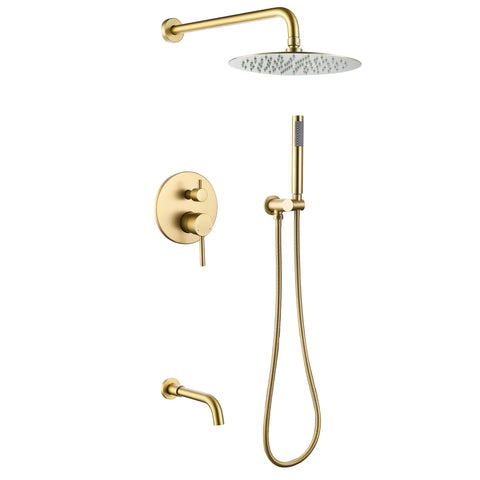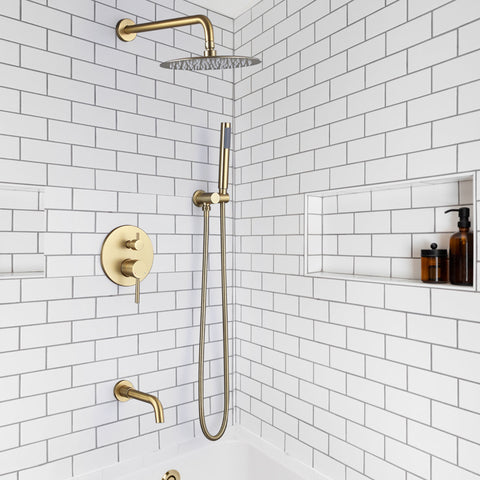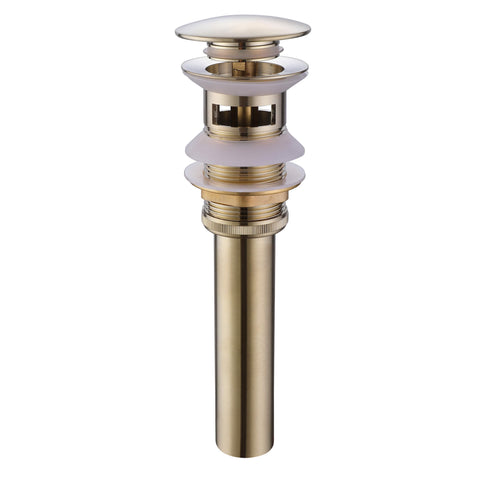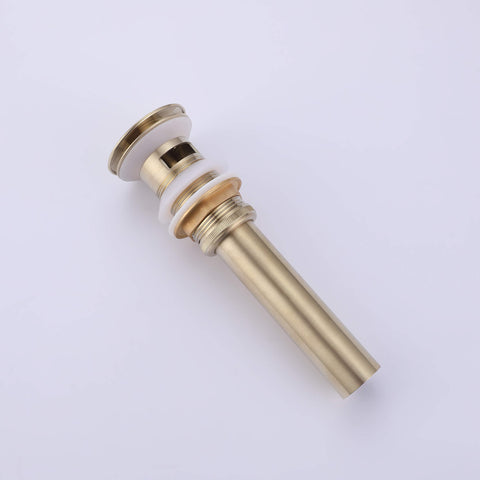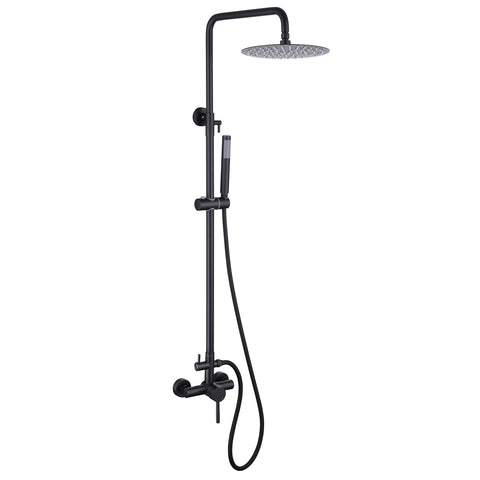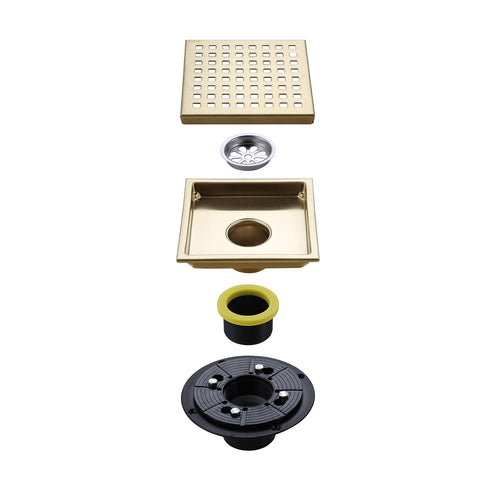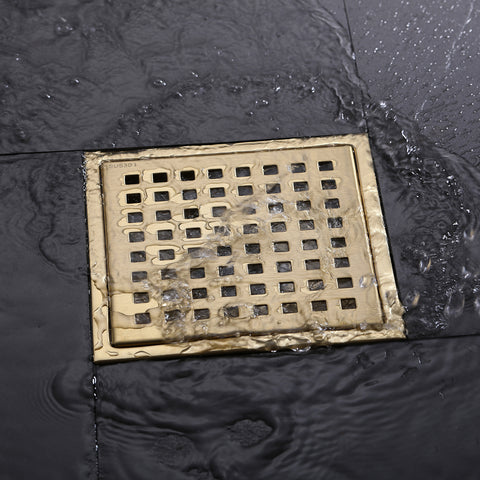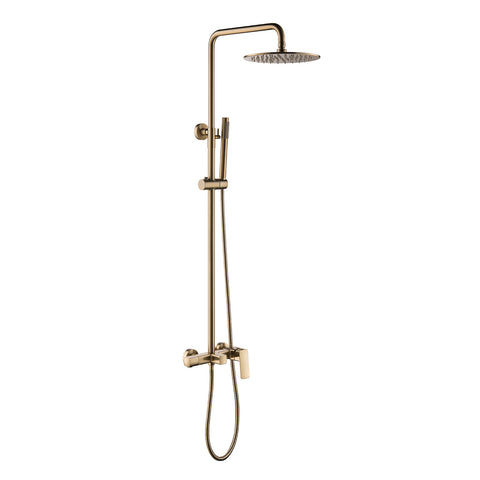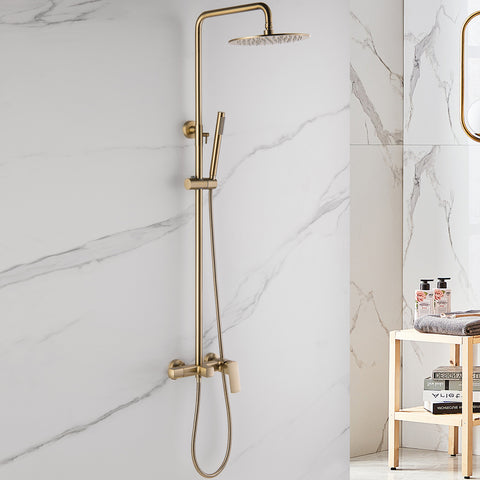The Health Benefits of Soaking in a Bathtub: Why You Need to Make Time for Self-Care
 Imagine immersing yourself in a warm, comforting bath after a long, stressful day. The soothing water enveloping your body, the aromatic fragrances filling the air, and the peace and tranquility that wash over you – it's not just a luxury, but a powerful act of self-care. There is a growing body of research that highlights the numerous health benefits of soaking in a bathtub.
Imagine immersing yourself in a warm, comforting bath after a long, stressful day. The soothing water enveloping your body, the aromatic fragrances filling the air, and the peace and tranquility that wash over you – it's not just a luxury, but a powerful act of self-care. There is a growing body of research that highlights the numerous health benefits of soaking in a bathtub.
From relieving muscle tension and reducing stress to promoting better sleep and enhancing mental well-being, the benefits of regular bath time are too important to be ignored. It's not just about indulgence; it's about prioritizing your physical and mental health.
Studies have shown that soaking in warm water can increase blood circulation and promote detoxification through sweating. The warm water can also help to reduce inflammation in the body, soothe muscle aches, and alleviate joint pain.
So, whether you're seeking a moment of relaxation, relief from aches and pains, or simply a chance to disconnect and recharge, making time for soaking in a bathtub is a powerful act of self-care that can have a profound impact on your overall well-being.
What is soaking in a bathtub?
Imagine immersing yourself in a warm, comforting bath after a long, stressful day. The soothing water enveloping your body, the aromatic fragrances filling the air, and the peace and tranquility that wash over you – it's not just a luxury, but a powerful act of self-care. There is a growing body of research that highlights the numerous health benefits of soaking in a bathtub.
The history of soaking in a bathtub
Soaking in a bathtub is the act of submerging your body in warm water for relaxation, therapeutic, or hygienic purposes. It has been practiced for centuries and is a common self-care practice in many cultures around the world. The concept of a bathtub can vary from a simple vessel filled with water to more elaborate designs with jets, aromatherapy features, and temperature control.
The physical health benefits of soaking in a bathtub
The practice of soaking in a bathtub dates back to ancient civilizations. The ancient Greeks and Romans believed in the healing powers of water and built elaborate bathhouses for communal bathing. In Japan, traditional wooden soaking tubs called "ofuro" have been used for centuries for relaxation and purification. Over time, the concept of soaking in a bathtub has evolved, but the underlying principles of relaxation and self-care remain the same.
The mental health benefits of soaking in a bathtub
Soaking in a bathtub offers a range of physical health benefits. The warm water helps to increase blood circulation, which can promote the delivery of oxygen and nutrients to the body's tissues. It can also aid in detoxification by stimulating sweating, which helps to flush out toxins from the body. Additionally, soaking in warm water can help to reduce inflammation, soothe muscle aches, and alleviate joint pain.
Research has shown that hydrotherapy, which involves the use of water for therapeutic purposes, can be beneficial for various conditions such as arthritis, fibromyalgia, and chronic pain. The buoyancy of water can relieve pressure on the joints and provide a gentle form of exercise. Regular soaking in a bathtub can also help to improve cardiovascular health by lowering blood pressure and reducing stress on the heart.
How to create the perfect bath experience
In addition to the physical benefits, soaking in a bathtub can have a positive impact on mental well-being. Taking the time to relax and unwind in a soothing bath can help to reduce stress and anxiety. The warm water and peaceful environment can promote a sense of calm and relaxation, allowing you to let go of the pressures of daily life. It can also be a form of self-care and a way to practice mindfulness, as you focus on the present moment and prioritize your well-being.
Studies have shown that soaking in warm water before bedtime can promote better sleep. The relaxation induced by a bath can help regulate the body's circadian rhythm and prepare you for a restful night's sleep. It can also be a form of self-soothing, providing comfort and a sense of security before bed.
Different types of bath additives and their benefits
Creating the perfect bath experience involves setting the right ambiance and using bath additives that enhance relaxation and well-being. Start by ensuring that your bathroom is clean and clutter-free. Dim the lights or use candlelight to create a soothing atmosphere. Play soft music or nature sounds to further enhance relaxation.
Choose bath additives that suit your preferences and needs. Bath salts can help to soothe sore muscles and promote relaxation. Essential oils can be added to the bathwater to create a fragrant and therapeutic experience. Lavender, chamomile, and eucalyptus are popular choices for their calming and rejuvenating properties.
Tips for incorporating regular soaking time into your self-care routine
There are various types of bath additives available, each with its benefits. Epsom salts, which are made of magnesium sulfate, can help to relax muscles, reduce inflammation, and relieve pain. Baking soda can be added to the bathwater to soothe itchy skin and promote detoxification. Oatmeal baths are beneficial for soothing dry and irritated skin.
Essential oils have long been used in aromatherapy for their healing properties. Lavender oil is known for its calming effects and can help to reduce anxiety and promote relaxation. Peppermint oil can provide a cooling sensation and relieve muscle tension. Eucalyptus oil has a refreshing scent and can help to clear congestion.
The best bathtub accessories for an optimal soaking experience
Making time for regular soaking in a bathtub is essential for reaping the full benefits. Here are some tips for incorporating this self-care practice into your routine:
- Schedule dedicated bath time: Set aside specific times in your schedule for soaking in a bathtub. Treat it as an appointment with yourself and prioritize it just like you would any other important commitment.
- Create a relaxing ritual: Develop a pre-bath ritual that helps you transition into a state of relaxation. This could involve lighting candles, playing soft music, or practicing deep breathing exercises.
- Disconnect from technology: Make your bath time a tech-free zone. Put away your phone, turn off the TV, and disconnect from the outside world. This will allow you to fully immerse yourself in the experience and focus on self-care.
- Experiment with different bath additives: Try different bath additives, such as bath bombs, bubble baths, or herbal teas, to enhance your bathing experience. Find what works for you and indulge in the scents and sensations that bring you the most joy and relaxation.
- Practice mindfulness: Use your bath time as an opportunity to practice mindfulness. Focus on the sensations of the warm water, the scent of the bath additives, and the feeling of relaxation washing over you. Let go of any thoughts or worries and be fully present in the moment.
Conclusion: Prioritizing self-care through regular bathtub soaking
To enhance your soaking experience, consider investing in some bathtub accessories. A bath pillow can provide support for your head and neck, allowing you to fully relax and enjoy the bath. Bath caddies or trays can hold your favorite book, a cup of tea, or a glass of wine, adding to the indulgence of the experience. Waterproof speakers or Bluetooth devices can allow you to listen to your favorite music while soaking.
